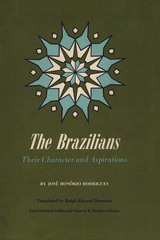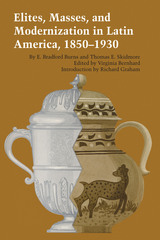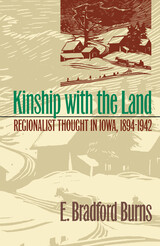
Brazil has long been a country in search of its own meaning and mission. Early in their history Brazilians began to puzzle over their surroundings and their relation to them. The eighteenth century produced an entire school of nativistic writers who, with the advent of independence, became fiery nationalists, still pursuing introspective studies of their homeland. Throughout the nineteenth century, the intellectuals of Brazil determined to define their nation, its character, and its aspirations.
In this now well-established tradition, José Honório Rodrigues confronts the questions of who and what the Brazilian is, what Brazil stands for, where it has been, and where it is going. This study, originally published in Portuguese as Aspirações nacionais, was especially timely at a period when strong feelings of nationalism led Brazilians to seek to define their own image, and when the revolution of rising expectations disposed them to determine what goals they were seeking and how far they were on the road to achieving them.
In order to understand and explain his nation, Rodrigues poses two questions: what are the national characteristics, and what are the national aspirations? Both questions are complex, but the reader will find well-reasoned answers, with a wealth of information on growth and development and abundant statistics to substantiate these answers.

The interactions between the elites and the lower classes of Latin America are explored from the divergent perspectives of three eminent historians in this volume. The result is a counterbalance of viewpoints on the urban and the rural, the rich and the poor, and the Europeanized and the traditional of Latin America during the late nineteenth and early twentieth centuries.
E. Bradford Burns advances the view that two cultures were in conflict in nineteenth-century Latin America: that of the modernizing, European-oriented elite, and that of the “common folk” of mixed racial background who lived close to the earth. Thomas E. Skidmore discusses the emerging field of labor history in twentieth-century Latin America, suggesting that the historical roots of today’s exacerbated tensions lie in the secular struggle of army against workers that he describes. In the introduction, Richard Graham takes issue with both authors on certain basic premises and points out implications of their essays for the understanding of North American as well as Latin American history.

Pioneers moving into Iowa in the nineteenth century created a distinctly rural culture: family, farm, church, and school were its dominant institutions. After decades of settlement, however, several lively and perceptive generations interpreted their political, economic, and cultural environment—their Iowa—much more imaginatively; they offered such abundant insight, understanding, meaning, and mission that they mentally and spiritually recreates Iowa. In Kinship with the Land historian Brad Burns celebrates this intense period of intellectual and cultural development.
Through their novels, short stories, poems, essays, drawings, and paintings, Iowa's regionalists expressed a rich abstraction of people and place. They conferred meaning, imparted understanding, defined the soil and the folk, conveyed a sense of place. Grant Wood in his overalls—the quintessential symbol of sophisticated talent and rural values—clearly represented regionalism's spiritual solidarity with the land and the people who worked it. Burns lets these Iowans speak for themselves, then interprets their distinctive voices to present a cogent case for and an understanding of the rural in an overwhelming urban America.
Kinship with the Land emphasizes the importance of Iowa's intellectual and cultural history and reaffirms the state's identity at the very moment that standardization threatened to eradicate it. By endowing Iowa with vibrant, independent art and literature, regionalists made refreshing sense of their environment. Readers from every state will appreciate their generous legacy.

The painful sixty-year process that brought Nicaragua from colonial status to incipient nation-state is the focus of this fresh examination of inner struggle in a key isthmian country. E. Bradford Burns shows how Nicaragua's elite was able to consolidate control of the state and form a stable government, resolving the bitter rivalry between the two cities Le&oacu;n and Granada, but at the same time began the destruction of the rich folk culture of the Indians, eventually reducing them to an impoverished and powerless agrarian proletariat.
The history of this nation echoes that of other Latin American lands yet is peculiarly its own. Nicaragua emerged not from a war against Spain but rather from the violent interactions among the patriarchs of the dominant families, the communities of common people, and foreigners. Burns is eloquent on the subject of American adventurism in Nicaragua, which culminated in the outrageous expedition of the filibuster William Walker and his band of mercenaries in the 1850s. It was a major breach of the trust and friendship Nicaraguans had extended to the United States, and the Nicaraguans' subsequent victory over the foreign invaders helped forge their long-delayed sense of national unity.
The decimation of Nicaraguan archives for the period prior to 1858 renders the study of early nineteenth-century history especially challenging, but Burns has made ingenious use of secondary sources and the few published primary materials available, including travelers' accounts and other memoirs, newspapers, government reports, and diplomatic correspondence. He provides valuable insight into Nicaraguan society of the time, of both the elite and the folk, including a perceptive section on the status and activities of women and the family in society. This book will appeal not only to professional historians but to general readers as well.
READERS
Browse our collection.
PUBLISHERS
See BiblioVault's publisher services.
STUDENT SERVICES
Files for college accessibility offices.
UChicago Accessibility Resources
home | accessibility | search | about | contact us
BiblioVault ® 2001 - 2024
The University of Chicago Press









